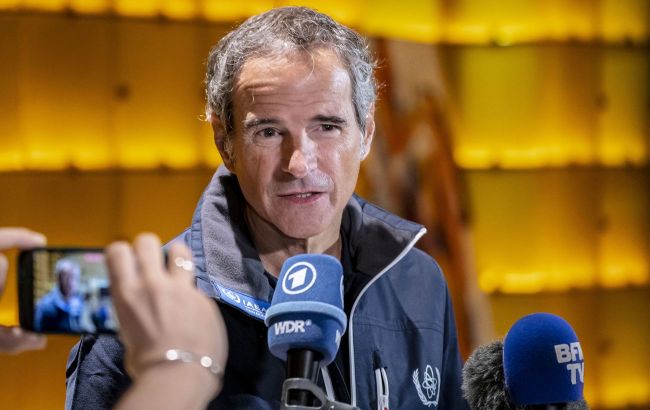Iran bans IAEA chief Grossi from nuclear sites, demands surveillance camera removal
 Photo: IAEA Director General Rafael Grossi (Getty Images)
Photo: IAEA Director General Rafael Grossi (Getty Images)
Iran has decided to ban Rafael Grossi, Director General of the International Atomic Energy Agency (IAEA), from visiting its nuclear facilities, Politico informs.
The decision was announced by Hamid Reza Haji Babaei, Vice Speaker of the Iranian Parliament, during today's funeral for high-ranking military officials and nuclear scientists who died in recent Israeli strikes.
In addition to the ban on Grossi, Iran demands the removal of surveillance cameras from its nuclear sites. The country claims that the Israeli government obtained "sensitive facility data."
Politico reminded that Iran had previously allowed the IAEA access to its nuclear installations for inspection. Iran also permitted the use of advanced monitoring devices to keep its nuclear program under control, as part of the 2015 nuclear agreement.
This agreement was signed by Tehran together with France, Russia, the United Kingdom, the United States, Germany, and the European Union. However, the Trump administration withdrew from the deal in 2018.
During recent negotiations over its nuclear program, Iran threatened to remove the surveillance cameras.
Israel-Iran conflict
Recently, Israel and Iran reached a ceasefire after a 12-day war.
During the operation, Israel attacked heavily protected Iranian nuclear sites using drones and military aircraft. The goal was to prevent the regime from developing a nuclear bomb.
In response, Iran launched retaliatory strikes on Israeli cities.
Additionally, on the night of June 22, the United States struck three Iranian nuclear facilities in Fordow, Natanz, and Isfahan.
Soon after, US President Donald Trump and several other officials claimed that Iran's nuclear program had been completely destroyed. However, according to US intelligence reported by the media, this is not the case.
Moreover, it was revealed today that the US did not use bunker-buster bombs in the strike on the Isfahan site. Because the facility is deeply buried, such bombs were likely to be ineffective.

